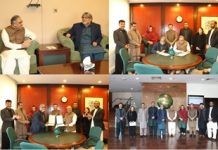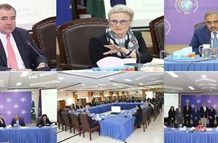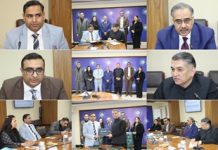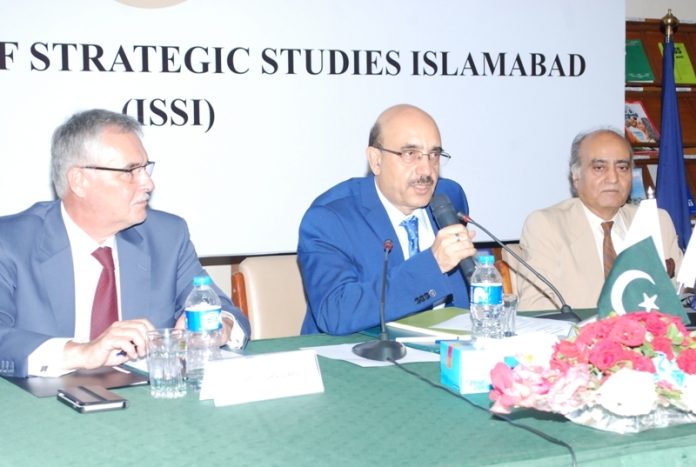Press Release
Public talk on “Pakistan – Hungary Relations”
Institute of Strategic Studies, Islamabad
July 26, 2016
The Institute of Strategic Islamabad (ISSI) organised a public talk today on “Pakistan–Hungary Relations” under its Ambassador’s Platform series. The distinguished speaker on the occasion was, H.E. Mr. Istvan Szabo Ambassador of Hungary to Pakistan. The talk was also addressed by representatives of the Hungarian Oil & Gas Company MOL. These included Mr. Afzaal Akhtar, Head of Business Support MOL, Hungarian Oil & Gas Company and Mr. Ali Murtaza Abbas, Group Regional Advisor Middle East and Africa MOL Hungarian Oil & Gas Company.
Ambassador Istvan Szabo stated that the Hungarian-Pakistan relationship has many aspects that have evolved since the independence of Pakistan. The Ambassador stated that Hungary looks upon Pakistan as an essential power to safeguard peace and security in a highly important but inherently volatile part of the world. He went on to say that the Hungarian Government appreciates and supports the efforts of the Government of Pakistan to strengthen regional peace and security and to suppress terrorist activities which further bolster the issues of illegal, unchecked and non-regularised mass migration. He said that in line with the Hungarian Southern Opening policy, the government is focusing on enhancing bilateral cooperation with Pakistan including trade and commercial ties, higher education and scientific exchange.
The Hungarian Embassy’s trade attache through its ties with various agencies has tried to enhance economic ties. The Ambassador went on to give stats about the Hungarian economy citing reasons as to why it is an attractive destination for doing business giving examples of the good arrangements and highly developed infrastructure. Ambassador Sabzo stated that Pakistan is considered to be a medium sized trading partner of Hungary. The trade volume between the countries has had fluctuations which is why the primary goal is to enhance the trade activity between the countries. He stated that Pakistan is a very challenging market and only financially strong and pre companies can manage their activities here. Education is a priority area as well, with MoU’s signed by either side. The Hungarian Government has recently offered 80 scholarships for Pakistan in Hungarian institutions of higher education and they plan to increase this figure to 200 by next year. He paid glowing tribute to Mr. Agha Shahi, for promotion and enhancement of relations between Pakistan and Hungary.
Earlier in his welcome remarks, Ambassador Masood Khan, Director General ISSI paid tribute to Ambassador Szabo and called him a multilateralist. He stated that Hungary has always been a friendly country towards Pakistan and both countries have maintained good political ties and are trying to forge closer economic and trade ties. Ambassador Masood also acknowledged how the Hungarian government has always provided valuable assistance in times of crisis. One crucial sector for both countries has been energy. Here the Ambassador highlighted the work being done by the Hungarian Oil & Gas Company, MOL which has invested $ 2 billion and is meeting 14 percent of Pakistan’s energy requirements.
During their presentation about the work of MOL Hungarian Oil & Gas Company, Mr. Afzaal Akhtar and Mr. Ali Abbas stated how MOL Pakistan has been operating in Pakistan since 1999 and is a major producer of oil, gas and LPG in the country. They applauded efforts by the army and said that projects in the KPK region would not have been possible without the army’s support. They informed the audience that since MOL works in areas of extreme poverty, it has established schools in the area to provide tertiary, primary as well as professional education.
Ambassador Khalid Mahmood, Chairman Board of Governors of ISSI, in his concluding remarks underlined that Pakistan highly values friendly relations with Hungary and is committed to strengthening ties and enhancing long-lasting cooperation. He praised MOL’s constructive role in Pakistan and applauded at how it had shattered the distorted impression of the country not being safe for investment.












